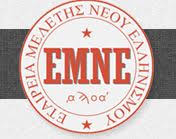In the spring of 1776, Choiseul-Gouffier encounters a strange monk in Patmos, who, full of anxiety, asks him whether Voltaire and Rousseau are still alive –a conversation renowned in Modern Greek letters as a sign of the sporadic diffusion of Enlightenment ideas during the early years in the periphery. Approximately ten to fifteen years later in Bucharest, we come across a titular bishop of Myra (the one-time thriving city in Lycia, Asia Minor), by the name of Mathew, who comes from Patmos and is part of the libertine environment of prince Nikolaos Mavrogenis. Around this time (at about 1800), Mathew is criticized by both Michael Perdikaris (in his Ermilos as well as in the separately printed prologue to this work) and Kyrillos Lavreotis Patreus (in a manuscript as well as in his –largely unpublished– “Interpretatation of the Apocalypse”), for being irreverent, an atheist, etc. Are we allowed to infer that the monk of 1776 and the bishop Mathew of Myra are the same person? A captivating hypothesis which, however, remains just that: a hypothesis. Albeit the possibility that the allegations against Mathew were exaggerated, it is likely that they did have some grounding: during the years following the French Revolution, the intellectual climate in Bucharest, Iasi, as well as in Istanbul, tended towards libertinage, religious (remember the “Anonymous of 1789”), as well as moral (the best known example here is Rigas). Moralists had every reason to worry, and indeed they demonstrated their worries in every way; all these testify to a new ideological complex that had reached the Balkans and had deeply divided their societies. Enlightenment ideas had reached the Balkans, indeed, but only the big cities. In small communities, on the contrary, every little divergence from current behaviours or from the unquestioned acceptance of religious dogmas led to the immediate and general condemnation of the transgressor. Coincidentally, our example comes yet again from Patmos, 1795.
(EN)

